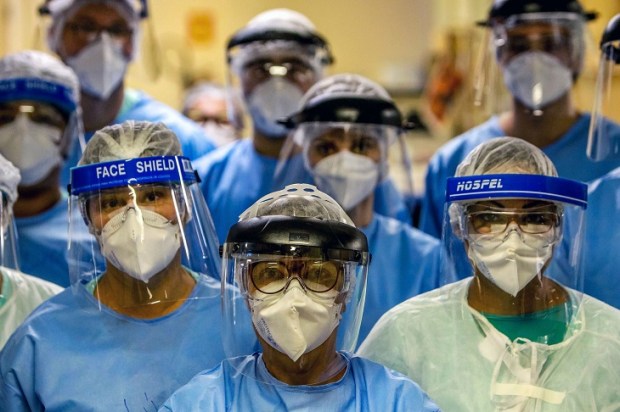It may be that a major casualty from the pandemic is the damage done to the medical profession. Healthcare is being used as the defence and rationalisation for policies we should revile. Rather than instilling faith in public health, and in medicine – government policies have undermined the foundations of medical ethics and caused a huge amount of damage to trust in public health measures.
Already a subscriber? Log in
Subscribe for just $2 a week
Try a month of The Spectator Australia absolutely free and without commitment. Not only that but – if you choose to continue – you’ll pay just $2 a week for your first year.
- Unlimited access to spectator.com.au and app
- The weekly edition on the Spectator Australia app
- Spectator podcasts and newsletters
- Full access to spectator.co.uk
Or


























Comments
Don't miss out
Join the conversation with other Spectator Australia readers. Subscribe to leave a comment.
SUBSCRIBEAlready a subscriber? Log in